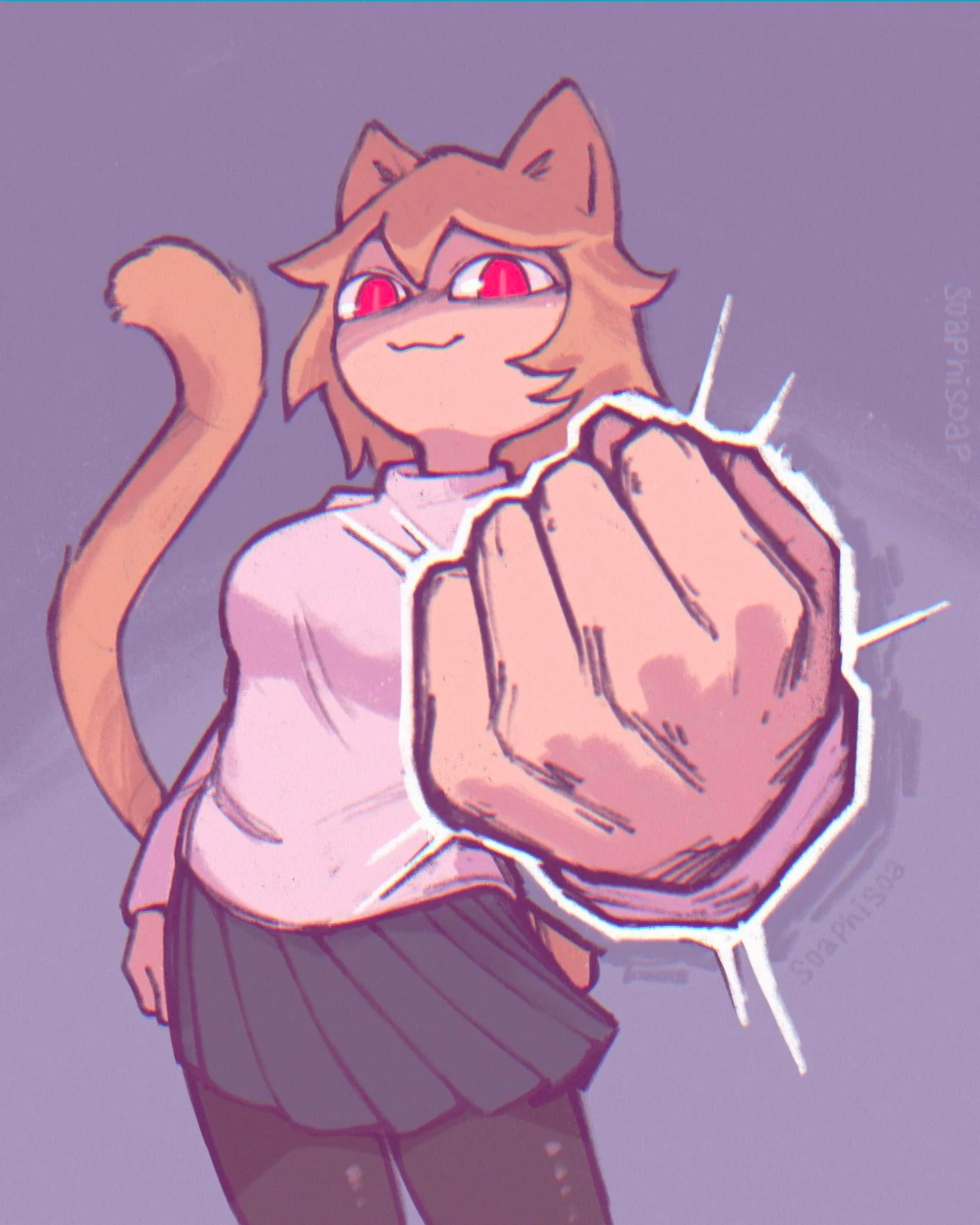Virgin Knight Who Is the Frontier Lord in the Gender Switched World - Chapter 56
- Home
- All
- Virgin Knight Who Is the Frontier Lord in the Gender Switched World
- Chapter 56 - Record Every Word
That day, the appearance of Faust von Polydoro struck the assembled nobles as unusual.
To describe it as peculiar might not be entirely fitting.
But for the nobles present, there was no other way to express it.
In the royal castle of Anhalt, in the throne room where Queen Liesenlotte sat.
Typically, lords of minor territories and lower-ranking nobles, adorned in legal robes and usually not permitted an audience with the queen, were granted entry solely on this day.
Of course, they had to leave all swords and daggers with the guards and were only allowed in their ceremonial dress.
The reason for gathering the nobles.
To hear the official report of the peace negotiations with Virendorf by the main envoy, Princess Valiere the Second, and the deputy envoy, Lord Polydoro.
That was the official reason.
However, the real purpose was to publicly commend Lord Polydoro for his achievements and for the queen to bestow upon him a reward commensurate with those achievements.
The purpose was to observe how the royal family would navigate the current distorted situation, one not grounded in the mutual contractual obligations of grace and service.
Whether the royal family would duly compensate Lord Polydoro.
For the lords and nobles in legal robes, for those who consider themselves to be proper nobles, this was not a matter of indifference; they all came to witness it.
Of course, the Anhalt royal family is not foolish.
It was Lord Polydoro’s extraordinary accomplishments that were unusual, not the royal family’s inability to keep up with his pace of achievements.
This was well-known to everyone.
Yet, maintaining the status quo was not an option.
Lord Polydoro’s military achievements, including saving the nation during the Virendorf campaign, assisting Princess Valiere the Second in her first confrontation with local lords, and even sacrificing his chastity for peace negotiations with the Virendorf royal family, were remarkable.
He was being burdened with tasks far beyond the protection of his territory.
The Anhalt royal family was not only expected to provide him with money and armor but had reached the point where they should also offer him lineage and territory.
This was recognized by all.
Even at this juncture, some shortsighted individuals mocked Lord Polydoro for his unconventional appearance among the legally robed nobles.
Such foolish individuals would, hopefully, understand after seeing Queen Liesenlotte personally take Lord Polydoro’s hand and praise his achievements, that they could no longer mock him as they had before.
But there would still be idiots who wouldn’t understand, even after all this.
That was the thought process of many proper nobles in Anhalt before Lord Polydoro appeared.
Let me say it once more.
That day, the appearance of Faust von Polydoro struck the assembled nobles as unusual.
“Lord Polydoro. Excuse me, but in that attire. And the person accompanying you, please wait here.”
One of the Queen’s guards called for a halt just before Lord Polydoro entered the throne room.
Princess Valiere the Second, walking beside Lord Polydoro.
Instead of ceremonial dress, he was in armor.
The fluted armor, inscribed with total magic marks, not even two months since its manufacture and already bearing sword marks all over from the journey to Virendorf.
Perhaps, if a minstrel were to sing Lord Polydoro’s 99 battles and 99 victories in duels, including the moment he won over Queen Katarina’s heart, it would be celebrated as a hundred victories.
Those sword marks, earned in duels, were evident on his armor as Lord Polydoro appeared in the throne room.
A priest from the Cologne Sect followed closely behind him.
What could this mean?
As a noble in legal robes and the herald assigned to record today’s event, I found it puzzling.
Some lower-ranking foolish nobles in legal robes scoffed at his lack of decorum, calling him a barbarian knight.
Record this.
I will note their names on a separate sheet of paper, not the official record.
Idiots will be dealt with later; make sure to record them.
I have been commanded by Queen Liesenlotte herself to do so.
This occasion is also to determine who is “necessary” and who is “unnecessary” for the future of the Kingdom of Anhalt.
Inwardly, I scorn the foolish lower-ranking nobles who laughed earlier and dismiss their stupidity as unavoidable, continuing my recording.
They will likely be reprimanded and stripped of their titles for finding some fault.
Well, such trivial people are, as the saying goes, inconsequential.
Why is Lord Polydoro in armor and not in ceremonial dress?
And why is a priest of the Cologne Sect accompanying him?
“Your words are very reasonable. However, I must ask for forgiveness this time. This armor was bestowed upon me by Princess Anastasia the First, and these marks are from wounds received during the peace negotiations with Virendorf. I believe appearing in this armor for the report of the successful peace negotiations with Virendorf is not impolite. And”
Lord Polydoro, unlike during the parade I saw, did not show a speck of interest in the citizens.
His face was not stiff; his eyes emitted a fiery passion, and his towering figure, over 2 meters tall, was filled with a commanding presence.
Peculiar.
Yes, it was peculiar.
Different from the “Knight of Wrath” described by minstrels, who are said to have rampaged across the battlefield with a flushed face.
Yet, it was not a normal state either; there was a sense of both madness and calm, a curious impression.
I hastily jot down on the record about Lord Polydoro’s condition.
On that day, the appearance of Faust von Polydoro struck the nobles as peculiar, I wrote.
Beside me, Lord Polydoro continued.
“Most of all, I wish to be in this form today. Well, it’s a whim of mine, but as I said earlier, it’s not unreasonable, right? Please forgive me.”
“The person accompanying you, the priest of the Cologne Sect?”
“She is needed. That’s all there is to it. The Queen is already aware. Are you not informed?”
He did not even exchange glances with the guard who tried to stop him.
Lord Polydoro’s gaze was fixed straight ahead towards the throne.
“Understood. Please proceed.”
“Thank you.”
Lord Polydoro began to move forward.
His demeanor seemed to ignore the surroundings, yet his gaze sharply scanned those around him, and I saw the previously mocking nobles in legal robes freeze in place.
Serves them right.
I couldn’t help but feel a bit smug, but then it seemed as if our gazes met.
My heart skipped a beat.
I do not dislike Lord Polydoro.
Since the Virendorf campaign, it has always been so.
Chosen as a noble in legal robes for my exceptional memory of every noble’s face, I now serve dual roles as a herald and recorder, but my hometown is a remote territory on the border with Virendorf, and I am the second daughter of a lord knight from there.
My homeland was saved by Lord Polydoro.
Deep gratitude resides in the depths of my heart.
“May I ask if you are the recorder for today’s event?”
His voice came through.
Our gaze meeting was not my imagination.
Stopping on the red carpet leading to Queen Liesenlotte, he looked straight at me and spoke.
His voice, likely to carry well on the battlefield, yet carried a gentle tone to me.
“Yes, I am humbly serving as the recorder for today.”
“I see.”
Lord Polydoro offered a slightly bashful smile.
My heart fluttered again.
I had only seen him from a distance before and had no way to express my gratitude for saving my homeland.
Was Lord Polydoro always such a gentle person?
His towering presence was unexpectedly filled with a gentle aura.
“I have one request.”
“Please, let me know.”
I found myself nodding, almost mesmerized, to Lord Polydoro’s request.
“Could you please record every word I say today? It may prove to be in vain, but perhaps, it might benefit someone in the future.”
“I understand. I will record every word without fail,” I replied, bowing my head.
In response, Lord Polydoro said only two words.
“Thank you.”
His voice was genuinely kind.
When I looked up again, Lord Polydoro had already resumed his walk. Something warm stirred within me, yet simultaneously, a dreadful premonition took hold.
“Lord Polydoro?” I murmured, a sound so soft it reached neither his ears nor those of the nobles nearby.
An uneasy feeling gnawed at me. The kindness I felt in Lord Polydoro’s voice now seemed tinged with sadness. His fluted armor bore not a single sword mark on its back, a testament to never having retreated in any duel in Virendorf. Yet, to me, his figure seemed like that of a knight prepared for death, finding the person to whom his final words were meant, as if saying, “Now I can die in peace.”
I shook my head in disbelief. That couldn’t be. Today was a day of celebration, a day when Faust von Polydoro, a man who had faced discrimination in Anhalt for his imposing stature, who had achieved great military deeds without recognition, who had been entangled in the first battle of Princess Valiere the Second against local lords, and who had been appointed as a negotiator for peace with Virendorf unrelated to his territorial protection contract, would have all his efforts rewarded. Queen Liesenlotte was expected to grant him either land, lineage, or both, ensuring that Faust von Polydoro would no longer be ridiculed publicly, and the reputation of his mother, Lady Marianne, rumored to be a madwoman in Polydoro territory, would be restored. He was supposed to walk the streets proudly, basking in fame and admiration. It had to be that way; anything else would be absurd.
“Your Majesty, as your second daughter Valiere, I have returned from Virendorf with good news,” announced Princess Valiere the Second, the chief envoy, standing tall and confident, a far cry from the unproven figure she was before her first battle.
“Everyone here likely knows the story already. But good news bears repeating, Valiere. Speak of your achievements before this full assembly of legal nobles and lord knights,” the Queen commanded.
“Yes. Faust!”
This was a ceremonial formality. The success of the peace negotiations with Virendorf was already known to all present. Lord Polydoro, the deputy envoy, knelt and presented a letter from Queen Katarina of Virendorf to Queen Liesenlotte.
“It is my duty,” Queen Liesenlotte stood from her throne to receive the letter, opened it, and read silently. Summarizing its content, she muttered, “In two years, I shall bear a child by Faust von Polydoro. This is a condition for our countries to enter into a decade of peace negotiations. Queen Ina Katarina Maria Virendorf.”
Even hearing the conditions again, they felt surreal. I knew that the peace negotiations were influenced by advisories from the Holy Gusten Empire, but the idea that the cold-blooded Queen Katarina, known for her emotionless demeanor, desired Lord Polydoro’s offspring as a condition for peace was astonishing. Likely, she was captivated by Lord Polydoro’s fervor. What happened in Virendorf had already become the stuff of minstrels’ heroic poems in Anhalt. Lord Polydoro truly was a good man. Yet, snickers erupted.
As the queen read aloud the terms, some fools dared to mock the fact that Lord Polydoro had “sold his chastity.” They were marked for erasure. I noted the names of these women who laughed on a separate sheet labeled “unnecessary.”
“Well done, Valiere, and Lord Polydoro. This ensures our nation’s peace and allows us to focus our military efforts on the nomadic tribes of the north,” Queen Liesenlotte commended warmly, yet her eyes betrayed no joy. A chilling feeling washed over me. What was happening in this room?
“I would like to proceed to reward for merits as is my sincere wish,” Queen Liesenlotte’s voice filled the throne room, her authority evident even after years of reign.
“Many nobles here would think it obvious. For the achievements of Faust von Polydoro, an appropriate reward…”
Yes, that was the expected course. Wasn’t the queen about to decree it?
“But there is one who finds this troubling. Today, we will listen to that person’s grievances.”
A single dissenter to Lord Polydoro’s reward? Was this a setup to discourage future dissenters?
Looking back, it was a naive thought.
“Let’s have silence then.”
Reflecting now, Queen Liesenlotte had been gazing at “him” the whole time, her eyes locked on one person, never straying.
“Now, why don’t you make your plea?”
No pages were present; only one man was in the room.
“By your will.”
Lord Polydoro responded quietly to the queen’s invitation.
“To the legal nobles and lord knights gathered here, please lend me your time. I ask you to listen to the words of Faust von Polydoro.”
Rising from his knee, Lord Polydoro spoke out with a voice that filled the throne room.
“I wish to speak on the threat of a nomadic horse-riding nation that has emerged at the eastern end of the Silk Road, still unknown by name.”
His voice was gentle yet carried a sense of urgency that commanded attention, as if a desperate child was pleading, forcing all present to listen.
































